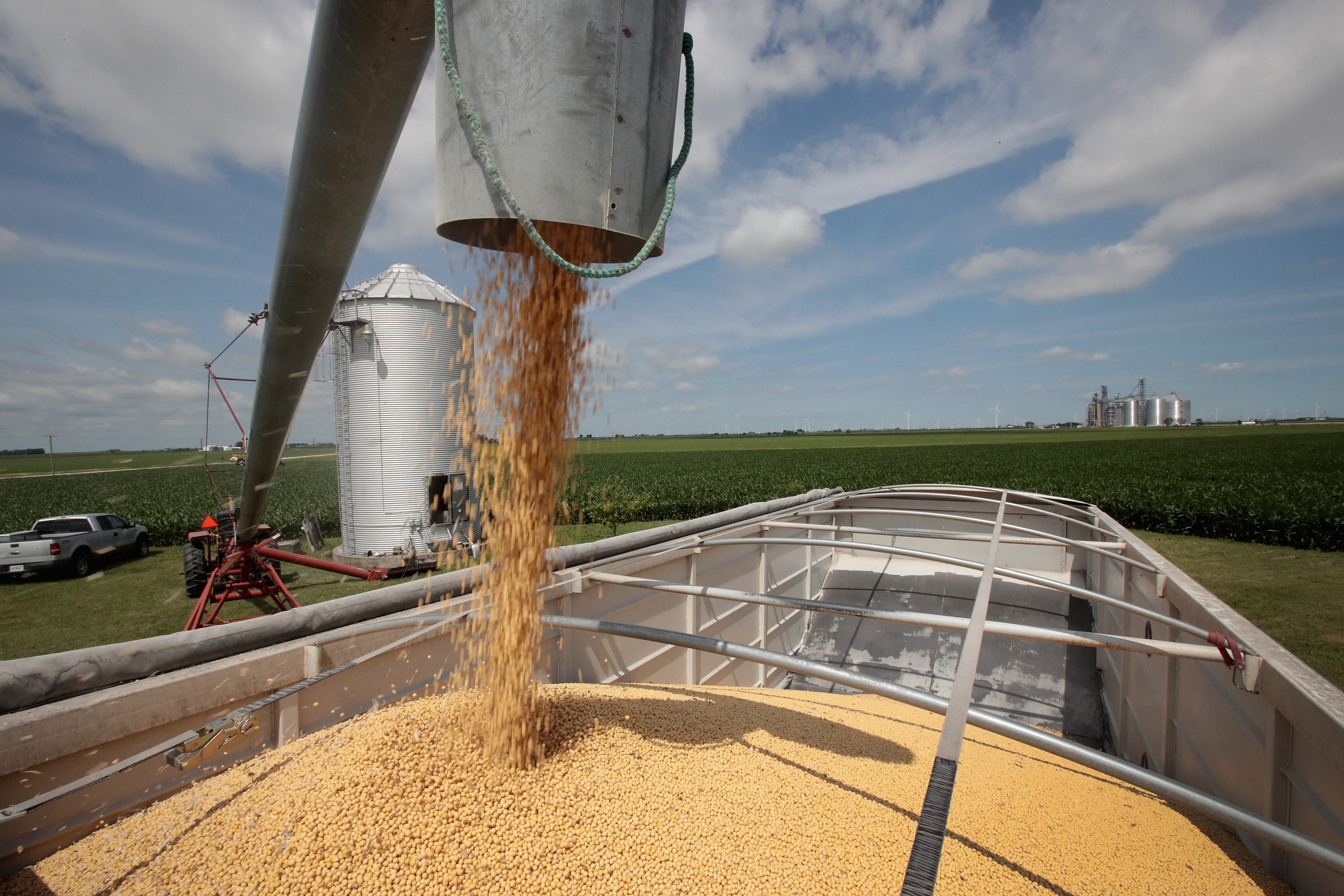How this dumb trade war could crack Trump's political coalition
Will the trade war make America's farmers turn on Trump?


A free daily email with the biggest news stories of the day – and the best features from TheWeek.com
You are now subscribed
Your newsletter sign-up was successful
President Trump is about to get his Fifth Avenue moment.
If you don't remember the significance of Fifth Avenue in the Trumpian mythos, here's a refresher: It came early in the 2016 presidential campaign, when the future president was riding high in the polls and already demonstrating an ability to shrug off controversies that would have destroyed other, more normal, candidates.
And so he exulted in Iowa: "I could stand in the middle of Fifth Avenue and shoot somebody and I wouldn't lose voters."
The Week
Escape your echo chamber. Get the facts behind the news, plus analysis from multiple perspectives.

Sign up for The Week's Free Newsletters
From our morning news briefing to a weekly Good News Newsletter, get the best of The Week delivered directly to your inbox.
From our morning news briefing to a weekly Good News Newsletter, get the best of The Week delivered directly to your inbox.
It was an alarming claim.
Unfortunately, there has been little since then to prove him wrong. Trump has insulted veterans, survived the Access Hollywood tape in which he bragged about forcefully groping women, disparaged minorities, and equivocated about Nazis. Yet he has survived, unscathed. Sure, his approval rating is still well below 50 percent in most polls, but he has 90 percent support from Republicans. Given how he won the presidency while losing the popular vote, he may figure that's all he needs to stay in the Oval Office. The uglier Trump gets, the more the GOP rank and file seem to love him.
But there is one thing that could crack Trump's political support: his trade policies.
He isn't opening fire on Fifth Avenue, but through his trade wars — for which he reportedly has no end game — Trump could very well inflict pain and suffering on many of his supporters. Their jobs and lives are in danger, and this might be the clearest possible test of their loyalty to him.
A free daily email with the biggest news stories of the day – and the best features from TheWeek.com
Where this might be most clear is in the agriculture sector. Much of Trump's support comes from big, but sparsely-populated, rural states. Farmers, in particular, love Trump: A poll earlier this year put their support of the president at 77 percent. Here's the thing about farmers, though: They love free trade. They've been among the biggest beneficiaries of NAFTA, and they despaired when Trump tore up the Trans-Pacific Partnership treaty. And they've been hugely vocal about their alarm at the prospects of a trade war.
This would seem to present a political problem for Trump. Iowa and Ohio, for example, are both bellwether states that went Republican in 2016. They're also among the country's top six producers of soybeans, the leading agricultural export in 2017.
Soybeans are also on China's list for retaliatory tariffs.
"The math is simple," said John Heisdorffer, the president of the American Soybean Association. "You tax soybean exports at 25 percent, and you have serious damage to U.S. farmers."
It's not just soybeans. Dairy, sorghum, and many other U.S. agriculture sectors stand to suffer from Trump's trade wars. Many farm states were also swing states in the 2016 election, and Trump only won them by a thin margin, including Michigan, Wisconsin, and Pennsylvania. Here, "a mass farmer defection could prove pivotal," FiveThirtyEight notes.
That's why elite Republican politicians from farm states — often silent about Trump's foibles — have found their voices to oppose the president's trade isolationism. After all, they have to face the voters too.
"There's nobody for this," Sen. Pat Roberts (R-Kan.), the Agriculture Committee chairman, said last week.
"It's not fair, and it doesn't make economic sense," Sen. Charles Grassley, an Iowa Republican, complained in April. Even Trump's own agriculture secretary has made warning sounds.
Despite all this, the president doesn't seem concerned. "I tell you, our farmers are great patriots," he said back in April. "They understand that they're doing this for the country. And we'll make it up to them."
Surely, this is a bridge too far. Trump can't damage the livelihoods of his supporters and still get their vote in 2020, could he?
Actually, he could.
Last week, the The Kansas City Star gauged the situation in Poplar Bluff, Missouri, where Mid Continent Nail Corp. has shed 60 jobs in the last month, and may have to shut down entirely because of Trump's tariffs. It found Trump's popularity there intact. He's "better than the Muslim we had in the White House," one resident told The Star.
So much for economic anxiety.
Trump's trade war might be worth it if there were any evidence it was likely to produce more benefits than losses. Alas, the president appears to have no end game planned — just escalation and retaliation until one side or the other blinks. That means we as a nation are standing in the middle of Fifth Avenue — and Trump, armed with little more than bravado and an oversized ego, is taking aim. Any other president would probably lose voters. Will he? Or is Trump completely impervious to the laws of political reality? We're about to find out.
Joel Mathis is a writer with 30 years of newspaper and online journalism experience. His work also regularly appears in National Geographic and The Kansas City Star. His awards include best online commentary at the Online News Association and (twice) at the City and Regional Magazine Association.
